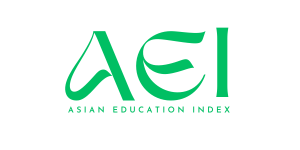The important parts of teaching in Direct and Audio-Lingual method in Russian Language
Keywords:
Language, Teaching, Audio-Lingual methods, Russian languageAbstract
Teaching is the one profession that creates all other professions. Many people know their target language, but they cannot use them communicatively. Still, they suffer from using target language. Throughout the years, teachers have been using several methods to teach students. In order to analyze students’ interaction, I did a research on teaching and learning process in Direct and Audio-Lingual method. The importance of my research is students’ ability to use language communicatively.
References
Berdieva Mukarrama Anvarovna. Features of work on the concept of “Speech Style” Tula International Conference on Teaching Foreign Languages (tsul icon - flt). – 2021.
Bazarova Sh. A, & Alimbaeva I. M. (2021). Modern Methods and Technologies of Role Play in Teaching Dialogue. Galaxy International Journal of Interdisciplinary Research, 9 (10), 218–221.
Bazarova Shokhida Ashirkulovna. International open conference - Development of creative activity of students in Russian language lessons. Vol. 1 No. 4 (2022): Scientific Aspects and Trends in the Field of Scientific Research.
Farogat Yuldasheva, Shakhida Bazarova – Improvement of teaching methods of grammatical concepts and non-linguistic subjects - XXXVI international scientific and practical internet conference “Problemy and perspective development of modern science in Europe and Asia” 2021.
Berdieva Mukarrama Anvarovna, Bazarova Shokhida Ashirkulovna – The role of authentic materials in teaching Russian language in higher education. Molodoy uchenyy – International scientific journal No. 17 (412) / 2022
Bazarova Shokhida Ashirkulovna. Methodology of teaching the Russian language in higher education. Journal of interdisciplinary innovations and scientific research in Uzbekistan. 2022
Downloads
Published
Issue
Section
License

This work is licensed under a Creative Commons Attribution-NonCommercial 4.0 International License.
User Rights
Under the Creative Commons Attribution-NonCommercial 4.0 International (CC-BY-NC), the author (s) and users are free to share (copy, distribute and transmit the contribution).
Rights of Authors
Authors retain the following rights:
1. Copyright and other proprietary rights relating to the article, such as patent rights,
2. the right to use the substance of the article in future works, including lectures and books,
3. the right to reproduce the article for own purposes, provided the copies are not offered for sale,
4. the right to self-archive the article.













